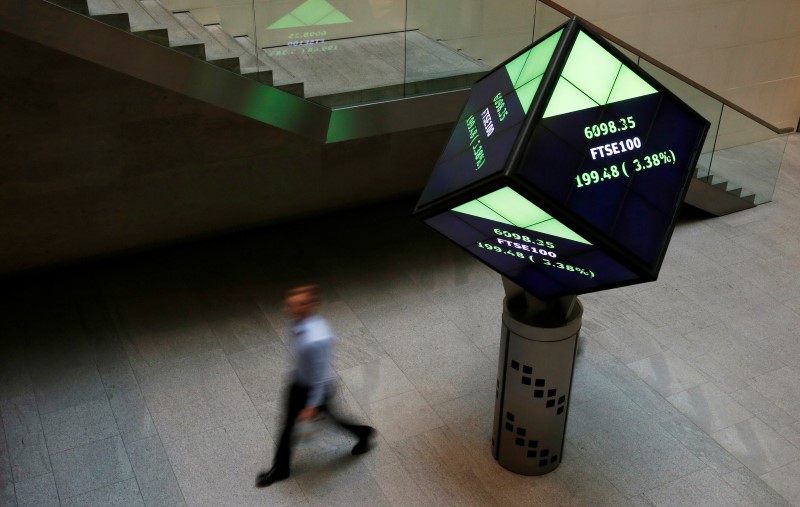By Vikram Subhedar
LONDON (Reuters) - European shares were poised to post their biggest weekly loss in two months on Friday and crude oil edged to eight-week highs on the back of a weaker dollar and hopes of a production cut.
With corporate earnings season in the United States and Europe largely out of the way, focus is back on the U.S. Federal Reserve and whether it decides to raise interest rates.
Mixed messages from the Fed in recent days have left investors cagey ahead of next week's annual meeting of central bankers from around the world in Jackson Hole, Wyoming, in which Fed Chair Janet Yellen is likely to cement expectations for a slow pace of rate increases.
European shares fell 0.6 percent on the day and are off 1 percent for the week, their biggest weekly loss since the mid-June. The index is down 6.7 percent this year, but has rebounded 11 percent from its post-Brexit vote low.
Volumes have thinned out in Europe with the summer lull kicking in. Thursday's session was the quietest in terms of trading activity across Europe's stock exchanges in nearly three months, according to Thomson Reuters data.
"We continue to forecast a 'fat and flat' market for equities across regions for the remainder of 2016," Goldman Sachs (NYSE:GS) said in a note to clients, suggesting that while they do not forecast a big slide, catalysts for further gains are lacking.
"There is the risk of shocks due to elevated political uncertainty in (the second half) and the potential for both monetary and fiscal stimulus disappointments," it said.
All major sectors were in the red in Europe though indexes received some support from energy sector heavyweights such as BP (LON:BP) and Statoil (OL:STL) which rose on the back of rising oil prices.
Brent crude rose above $51 a barrel and were on track for a seventh straight day, as hopes that producers could agree measures to support crude buoyed sentiment.
In currency markets, uncertainty around Fed rate hikes has hurt the U.S. dollar which was poised for a weekly loss against its major counterparts and remained mired near eight-week lows against the euro.
"The dollar has just been trading on the back foot really," said Lee Hardman, a strategist with Bank of Tokyo-Mitsubishi in London.
"The market is generally of the view that the Fed isn't going to raise rates any time soon. That leaves the dollar vulnerable in the near term," Hardman said.
The dollar index, which tracks the greenback against a basket of six major rivals, was down 1.4 percent for the week, though it rose 0.2 percent on Friday to 94.397. It had fallen as low as 94.077 on Thursday, its weakest since June 23.

The euro dipped 0.3 percent to $1.1325, still up 1 percent on the week while the yen traded at 100.15, half a yen off an eight-week high of 99.55 yen hit on Tuesday.